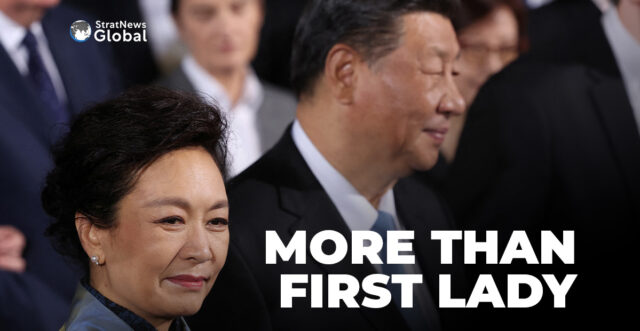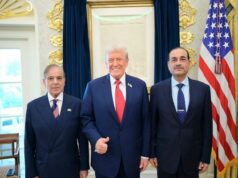By the usual standards of Chinese media, reporting or any writing on President Xi Jinping is nothing short of slavish, reflecting his power and authority. Now it seems, some of that coverage is spilling over to his wife Peng Liyuan. On Xi’s return from a three-nation swing through France, Serbia and Hungary, local media quoted Foreign Minister Wang Yi as undescoring that “First Lady Diplomacy was the highlight of the visit”.
In fact, a cursory reading of articles in the Chinese media gave the impression she was getting equal billing with her husband. A Xinhua report A CGTN report on the first couple’s visit to Hungary was headlined “Viktor Orban and wife hold farewell for Xi Jinping and Peng Liyuan in Budapest”; another during their France visit carried the headline “Peng Liyuan, French first lady visit Orsay Museum”; a similar headline heralded her arrival along with her husband in the Serbian capital Belgrade.
Is Xi laying the ground for expanding his wife’s role in the government and party? According to RFI quoting Hong Kong’s Sing Tao Daily, the first lady is being groomed to serve as a full-time member of the Central Military Commission’s cadre evaluation panel. It is also claimed that the six month delay in convening the 6th Plenum of the Communist Party in July, could be linked to Xi’s intention to have Peng Liyuan join the Politburo.
But it is the military role that bears scrutiny. Peng was serving in the rank of major-general in 2017 when she quit as head of the PLA Academ of Arts. Since then her specific military role has remained unclear. However, recent images circulating on Chinese social media platforms show her engaged in military-related activities. One caption says, “Peng Liyuan, a full-time member of the Central Military Commission Cadre Evaluation Committee, visits the school to research the development of high-level talent.”
It gives the impression that Peng might have been appointed to the committee, though no official confirmation has been made. That also suggests such manoeuvres are complex even for as powerful a pesonage as Xi Jinping, and it has to be thought through and carefully implemented. Even a high-ranking official like Cai Qi, who is the fifth ranking member of the Politburo standing committee, took time to rise.
On Weibo, China’s equivalent of X, comments from “Little Pinks” (loyalists of the regime) are increasingly featuring Peng Liyuan. Their posts frequently use the term “Our First Lady Diplomacy,” suggesting a key role for her in enhancing China’s diplomatic efforts. The enthusiastic support from these young nationalists highlights Peng Liyuan’s increasing influence and popularity as she accompanies President Xi Jinping on international visits.
“People’s Digest” described her as “China’s new business card,” lauding her “tulip diplomacy” with the Queen of the Netherlands as fragrant and charming. Wang Yi’s endorsement, emphasising her “soft power,” is also notable. China Daily highlighted her ability to act as a bridge between cultures and underscored her call while in Europe, for “Close friendship between peoples”.
Can Peng’s rise be compared to that of Mao Zedong’s fourth wife Jiang Qing, who in 1969, entered the Politburo? Prior to that, she was seen as Mao’s personal emisary in the early stages of the Cultural Revolution, was active in the realm of arts and culture particularly when pushing her husband’s cult of personality. She used her proximity to him to organise the Gang of Four that controlled several of China’s political institutions, but within months of Mao’s death in 1976, was arrested and disappeared from sight.
Research Associate at StratNewsGlobal, A keen observer of #China and Foreign Affairs. Writer, Weibo Trends, Analyst.
Twitter: @resham_sng





